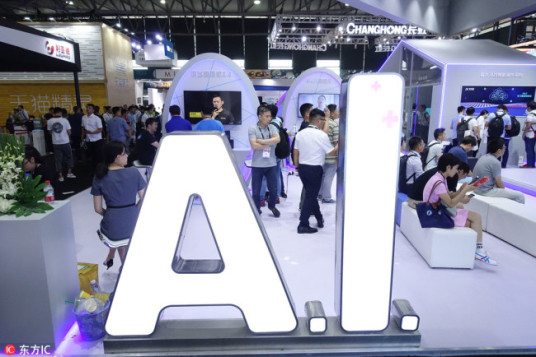Tencent wants to use AI to save lives
 |
|
Chinese tech giant Tencent Holdings Ltd is looking to leverage artificial intelligence to "save lives". [Photo/VCG] |
Chinese tech giant Tencent Holdings Ltd is looking to leverage artificial intelligence to "save lives", as the country called for accelerated efforts to develop the new generation of AI.
"We are developing AI in many sectors but our passion lies in that we are able to promote medical development through AI," said David Wallerstein, chief exploration officer of Tencent, at Tencent's We Summit, an annual gathering where luminaries share ideas on science and technology, held earlier this month.
According to the company, by this month, its AI medical capabilities had moved from CT scans and screening to pathologic analysis, marking a step forward in the application of AI.
AI and AR (Augmented Reality) also have been used in microscopes, which can offer real-time images to doctors and help improve efficiency.
Technologies, including intelligent imaging, can be used to gather a considerable amount of data from undeveloped countries or rural areas, and in turn, help them to improve medical conditions, he noted.
Wallerstein said that Tencent is 'pretty excited' that it is able to gather more information, acknowledge more insights and achieve the greatest results with as low a cost as possible.
The remarks came during China's call for more efforts to develop the new generation of AI to inject a fresh driving force into the country's high-quality economic growth.
It has been said that accelerating the development of new-generation AI is a strategic issue, key for China to seize the opportunities in the new round of technological revolution and industrial transformation.
AI should be used in areas such as education, health, sports, housing and transportation, Xi noted.
Tencent, as a leading tech player in the country, has been deepening its AI push into a variety of sectors, including healthcare.
Its cancer-detection product, Miying, is used in reading CT scans and screening for cancers, including lung cancer, the most common cancer in China. It also is able to pre-diagnose 700 types of disease.
By July this year, the AI-enabled product had helped to read over 100 million CTs and served more than a million patients.
